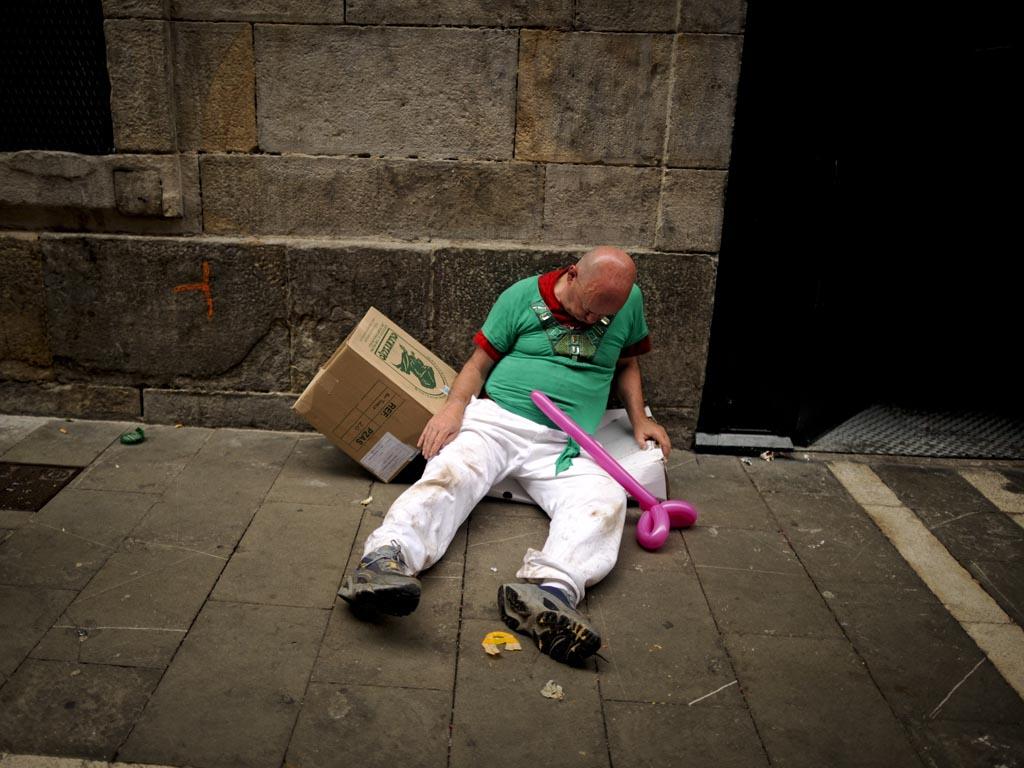A minimum price for booze? That's just middle class puritanism
Statistics show it's the middle classes binging most: but will this move protect them?

David Cameron has labelled the British culture of drunkenness a “scandal”, and the Daily Mail has described binge drinking as “creating a generation of aggressive and out-of-control women”.
If the scaremongers are to be believed, Britain is sinking into a bog of alcoholism of the sort depicted by William Hogarth in the 18th century.
Not only is it apparently unsafe to walk the streets on a Saturday night without being accosted by the human debris of our binge-drinking culture, but the medical treatment of those facing the long-term consequences of hitting the sauce is said to be slowly bankrupting the NHS.
The latest plan, perhaps inspired by the approach taken to illegal drugs over the past 40 years, is to “get tough” and “crackdown” on so-called problem boozers. With this in mind, the government is considering hitting drinkers in the wallet with a minimum price for a unit of alcohol.
The idea behind the minimum price is to dissuade the public from loading up on drink before hitting the town and getting even more legless. The proposal is backed by the Royal Pharmaceutical Society, the Alcohol Health Alliance UK and the British Medical Association.
Scotland has already introduced a 50p minimum price and, this week, the Coalition will announce options for minimum alcohol pricing, with a report due on Wednesday expected to recommend three possible prices for a unit – 40p, 45p or 50p.
Will it work?
Hyperbole aside, however, minimum pricing may not be the magic pill it’s cracked up to be. The evidence to suggest that the solution to Britain's apparent drink problem is to price people off alcohol is flimsy at best.
While no doubt appealing to those who write the familiar headlines depicting an out-of-control horde of drinkers laying waste to British high streets every Saturday night, the statistics appear to show that the country’s drink problem (if it exists at all) lies beyond the reach of mere price controls.
According to the Office for National Statistics, average weekly consumption of alcohol in 2010 was highest among those who worked in middle class professions and lowest among those in routine and manual occupations. Despite the lurid tabloid depictions of the dreaded “out of control” women, the statistics also showed that professional women drank on average 9.2 units of alcohol a week compared with those in manual occupations who drank 6.2 units a week.
When it comes to age, adults aged over 45 were three times more likely to drink alcohol every day than younger people.
You may want to go back and read the last two paragraphs again. The people that are supposed to be getting loaded on cheap Alcopops every weekend; those the tabloids and the Government want to price off the booze – you know, the working classes – aren’t, as it happens, drinking anywhere near as much as their middle class counterparts.
There’s a certain irony in the fact that, in the years to come, it may be working class folk who are footing the drink-induced health bills of, not the Vicky Pollards of this world, but those with a class background that’s closer to that of her creators – the middle classes.
Spewing statistics
In actual fact, not only are media portrayals of a descent into nationwide alcoholism an excuse to sneer at pictures of half cut women and the lower orders who apparently no longer know their place, but they’re also grossly misleading, for alcohol consumption among Britons has been decreasing – and decreasing quite significantly – for a number of years.
Between 2005 and 2010, the average weekly alcohol consumption per adult decreased by almost a third, from 14.3 units to 11.5 units. Among men, average alcohol consumption decreased from 19.9 units to 15.9 units a week and for women the figure reduced from 9.4 units to 7.6 units.
The data was released earlier this year and to the credit of certain sections of the press the socio-economic differentials were picked up on. However, the data that showed a widespread decrease in alcohol consumption, if not exactly hushed up, didn't attract anywhere near the number of headlines the lurid descriptions of binge drinkers tend to. And there were certainly no accompanying photos of a country shunning the bottle and soberly going about its business.
Let's say, for the sake of argument, that Britain does have a drink problem. The next step is to identify those most in need of help in controlling their alcohol intake. As the statistics show, these tend to be middle-aged people from the middle classes – hardly the people who are going to be discouraged by a few extra pounds on a bottle of wine.
Am I the only one who suspects, however, that minimum pricing is not primarily about health, but rather about “cracking down” on that which Middle England is forever fretting about cracking down on: the working classes having too much of a good time?

Join our commenting forum
Join thought-provoking conversations, follow other Independent readers and see their replies